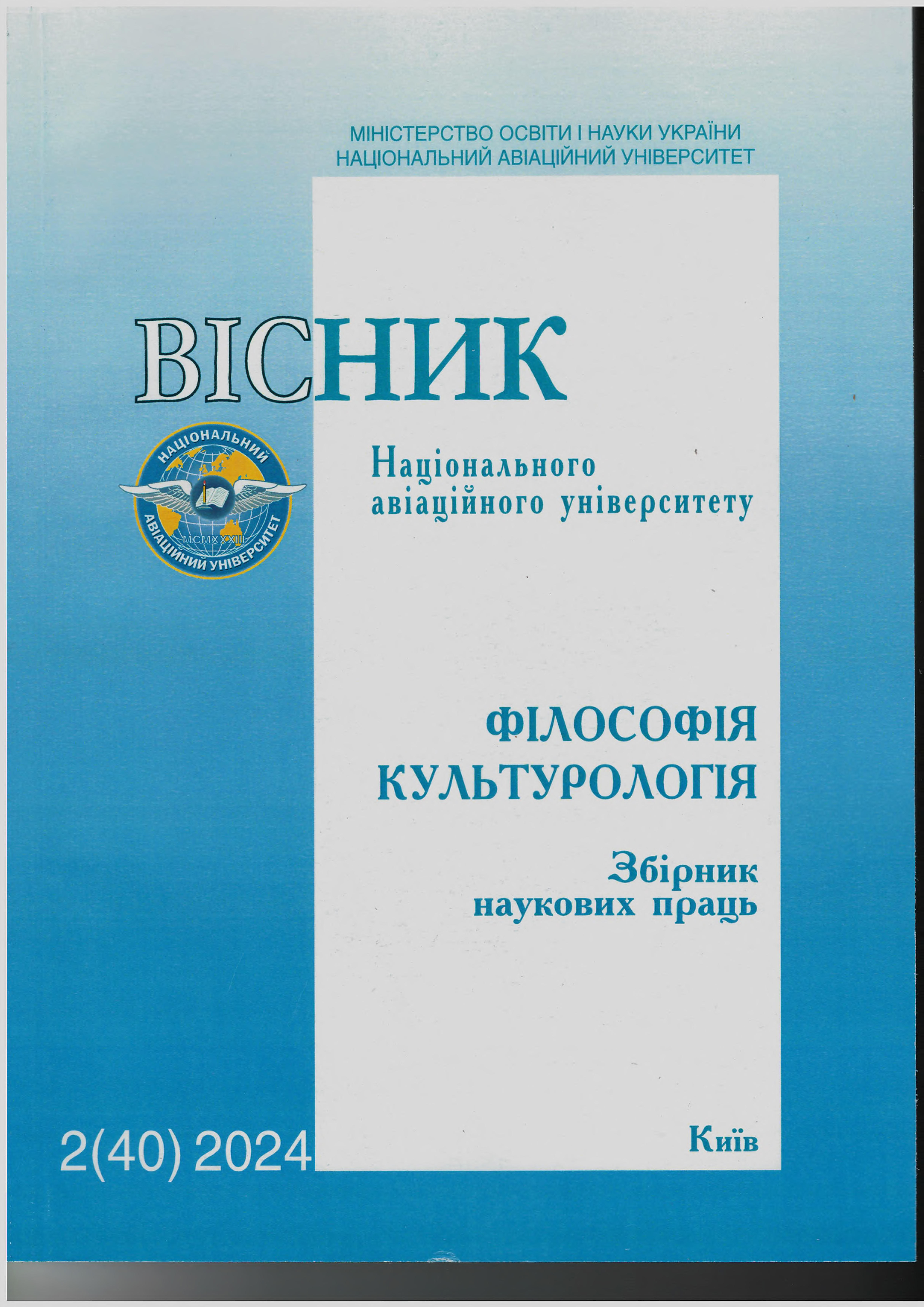VIRTUAL NETWORK COMMUNITIES: THE PROBLEM OF ALIENATION
DOI:
https://doi.org/10.18372/2412-2157.40.19327Keywords:
alienation, virtual network communities, mass communication, identity, Frankfurt School, network societyAbstract
The information age has intensified the problem of societal organization, highlighting the need to explore virtual network communities as a domain of human experience. Virtual network impact on corporeality, alienation, and freedom remains insufficiently studied. The aim is a philosophical-anthropological analysis of the interrelations between transformations in the inner world of the individual and the conditions of being within virtual network communities. The tasks are to analyze the relationship between mass communication and alienation through the theoretical approaches of the Frankfurt School; to examine changes in the inner world of the individual shaped by the forms of communication in virtual network communities. Research methodology. The study is based on theoretical analysis, the historical-philosophical method to explore alienation as a social phenomenon, comparative analysis of modern theoretical concepts, and approaches derived from the network society theory and research on virtual communities. Research results. The analysis of the relationship between mass communication and alienation emphasizes the relevance of the Frankfurt School’s ideas, which demonstrate how mass culture, by imposing standardized values, intensifies alienation. Formal rationality and mass communication become instruments of manipulation and illusory freedom, deepening human dependence. Discussion. The question arises as to how the dynamics of network communication influence social connections and cultural norms, shaping new behavioral models. Conclusions. Virtual network communities contribute to alienation through algorithmic content control, superficial communication, imposition of false needs, commercialization of identity, standardization of thought, and disjunction between online personas and real identities
References
Список літератури
Barlow J. P. A Declaration of the Independence of Cyberspace. February 9, 1996. URL: https://editions-hache.com/essais/pdf/barlow1.pdf.
Benjamin W. The Work of Art in the Age of Its Technological Reproducibility. Second Version / transl. by Edmund Jephcott, Harry Zohn. Cambridge : Belknap Press of Harvard University Press, 2008. 128 p.
Castells M. The Rise of the Network Society. 2nd ed., with a new preface. Oxford: Wiley-Blackwell, 2010. 594 p. (The Information Age; v. 1).
Habermas J. The Theory of Communicative Action. Vol. 1: Reason and the Rationalization of Society / transl. by Thomas McCarthy. Boston : Beacon Press, 1984. 465 p.
Horkheimer M., Adorno T. W. Dialectic of Enlightenment. Philosophical Fragments / ed. by Gunzelin Schmid Noer ; transl. by Edmund Jephcott. Stanford : Stanford University Press, 2002. 305 p.
Marcuse H. Eros and Civilization: A Philosophical Inquiry into Freud / with a preface by Douglas Kellner. Reissued with a new preface. London : Routledge, 1998. 277 p.
Pariser E. The Filter Bubble: What the Internet Is Hiding from You. New York: Penguin Press, 2011. 294 p.
Rheingold H. The Virtual Community: Homesteading on the Electronic Frontier. Revised edition. Cambridge, MA : The MIT Press, 2000.
Zuboff Sh. The Age of Surveillance Capitalism: The Fight for a Human Future at the New Frontier of Power. New York: PublicAffairs, 2019. 691 p.
Маркузе Г. Одновимірна людина. Дослідження ідеології розвинутого індустріального суспільства. Пер. з англ. Сучасна зарубіжна соціальна філософія: Хрестоматія. Київ: Либідь, 1996. С. 87–134.
Фромм Е. Втеча від свободи / пер. з англ. Т. Іваненко. Київ: Наш формат, 2016. 360 с.


